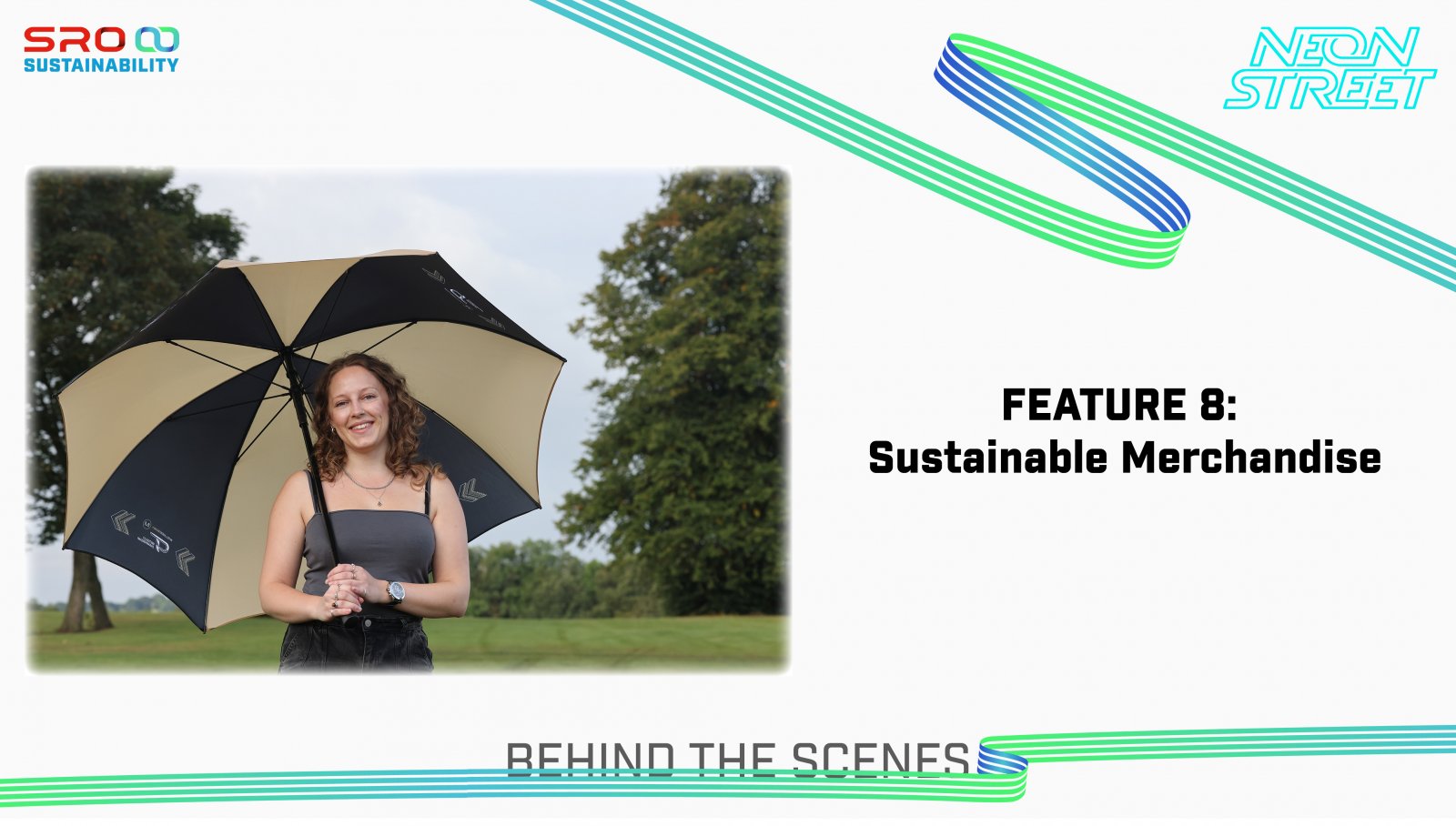Interview: Ellen Tunstall, Operations and Creative Lead at Neon Street
1) Please describe your professional role at Neon Street
In my role, I am responsible for designing and researching products for production of merchandise ranges for Intelligent Money British GT Championship, Fanatec GTWC Europe powered by AWS, Crowdstrike 24 hours of Spa and the FIA Motorsport Games.
I manage the ecommerce shops, the marketing strategies, the advertisements, as well as making the shops user friendly and functional. I also manage pop-up paddock shops at events for all championships, which includes planning and forecasting stock and the logistics of getting the shop kit to site.
On top of this, I interact with customers and SRO in order to identify requirements and expectations regarding our products and services.
2) Please describe your approach to sustainability in everyday life
I pay attention to the lifespan of clothing and items and making these items last, as they have endless lives and not just one life. I consider the supply chain and the material used to create different items.
I use reusable travel mugs and water bottles, as it’s one less thing to go to landfill. I’m conscious of recycling and eliminating unnecessary waste.
3) Why is sustainability important to Neon Street?
We are very aware that even though we are a small player, our activities impact the environment just as much as the next person.
Since 2019 when we started working with SRO’s Intelligent Money British GT Championship, we have been striving towards improvement with reducing our supply chain miles by sourcing from regional suppliers and manufacturers where we can. We are maximizing the percentage of recycled plastic content and recycled polyester in our merchandise, for example in RPET jackets, tech bags and lanyards. Anything that we can’t manufacture from recycled plastic or polyester, we are making sure it is made of 100% certified organic cotton, with high quality and long lasting, and at a fair price for our customers.
We know that the values of Neon Street and SRO are the same and that being joined on the journey to reduce waste and produce sustainable merchandise is crucial for protecting the environment and the way to grow for both companies and the brand.
4) Which concrete actions are Neon Street and SRO taking in 2023 to reduce environmental impact?
All our ecommerce orders are shipped using 100% recycled and/or recyclable packaging. We are working to make all our packaging polymer free and replace it with paper/card packaging or a food waste solution (such as bamboo packaging). Our packing slips for orders are printed on recycled paper and so are any price / size tags.
Our pop-up paddock shop is run on solar power along with a battery to store that energy for use on cloudier days. We do not use any mains power or petrol generators. We use LED lighting to keep power consumption down.
We limit the amount of stock produced for the season, going off the previous year’s sale, so everything is produced as limited edition, which has a positive impact on production and keeps customer interest higher.
We travel in one van to all European events bringing staff, shop kit and stock, meaning we’re not using multiple couriers and air miles to send stock and shop kit to the locations. This practice reduces our mileage significantly for all events.
5) In which fields do you see Neon Street working together with SRO on building a sustainable future for motorsports?
We are committed to sustainability in motorsports as well as in merchandise. I am constantly researching for innovative products and solutions that can convert the waste that has been created into products. Sustainability is key to a successful motorsport’s future.

